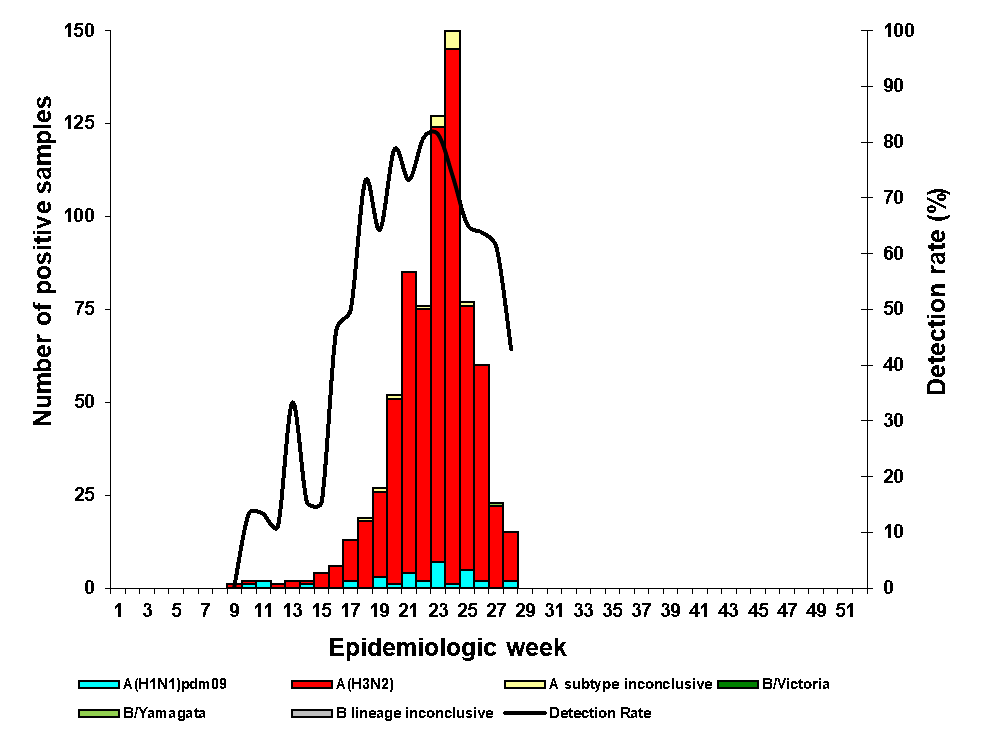The 2019 South African influenza season, which started towards the end of April, has started to decline. Transmission of influenza measured using the Viral Watch programme has declined to a low level, and impact measured using the pneumonia surveillance programme is currently below the seasonal threshold. Levels of transmission and impact are determined by the Moving Epidemic Method (a sequential analysis using the R Language by comparing observed levels of influenza to those seen in previous years.
To date, the majority 946/1028 (92%) of influenza-positive samples for this season, detected by three surveillance programmes, have been identified as influenza A(H3N2). Influenza A(H3N2) is one of the three seasonal influenza viruses prevalent in human populations. Influenza surveillance reports are published weekly during the season and monthly. View the latest NICD influenza surveillance report
Influenza cases in schools
As is expected during the influenza season, there has been a marked increase in cases of influenza in the community as well as people seeking care for influenza-like illness at health care facilities. Earlier in the influenza season, there were a number of clusters of influenza cases in schools, which is not uncommon as children are important transmitters of influenza.
Government schools recently closed for the June school holidays and the decrease in cases and reduced numbers of reported school clusters in the past few weeks may be related to many schools having been closed. Most government schools have just returned from the June school holidays. In the majority of years, we observe the second increase in influenza circulation following the main peak but this usually reaches lower levels than the initial peak.
People at High Risk for Flu Complications
Although the majority of people with influenza will present with mild illness, influenza may cause severe illness, which may require hospitalisation or cause death, especially in individuals who are at risk of getting severe influenza complications.
Groups at increased risk of severe complications of influenza include pregnant women, HIV-infected people, people with chronic illnesses or conditions like diabetes, lung disease, tuberculosis, heart disease, renal disease and obesity, the elderly (65 years and older) and children less than 2 years old. These groups should be encouraged to seek medical help early.
Influenza vaccination
Influenza vaccine remains the primary means for preventing seasonal influenza infection. The vaccine should ideally be administered before the influenza season from March to April. Although we are in the midst of the influenza season, it is not too late to vaccinate, especially if you have an underlying condition which increases your risk of severe illness. This is because most years more than one strain of influenza circulates during the season.
The annual seasonal influenza vaccine contains strains corresponding antigenically as closely as possible to the 3 seasonal influenza strains prevalent in human populations: influenza A(H1N1)pdm09, influenza A(H3N2) and influenza B. A protective antibody response takes about 2 weeks to develop therefore the vaccine cannot prevent infection that may already be incubating or acquired during that period. Groups at risk of severe influenza complications should be prioritized to receive the vaccine.



